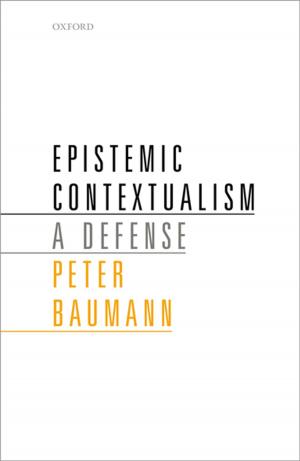The Settlement of International Cultural Heritage Disputes
Nonfiction, Reference & Language, Law, International, Social & Cultural Studies, Social Science| Author: | Alessandro Chechi | ISBN: | 9780191009099 |
| Publisher: | OUP Oxford | Publication: | March 13, 2014 |
| Imprint: | OUP Oxford | Language: | English |
| Author: | Alessandro Chechi |
| ISBN: | 9780191009099 |
| Publisher: | OUP Oxford |
| Publication: | March 13, 2014 |
| Imprint: | OUP Oxford |
| Language: | English |
The past forty years have seen a wide proliferation of disputes under international law concerning cultural heritage. These have included the restitution of stolen art objects or the protection of monuments. Unlike other fields of international law, international cultural heritage law does not have an ad hoc mechanism of dispute settlement. As a result, controversies are to be settled through negotiation or, if it fails, through existing dispute resolution means. This can result in similar cases being settled in different ways, thereby bringing about an incoherent and fragmentary enforcement of the law. This book offers a comprehensive and innovative analysis of the settlement of cultural heritage disputes. This examination is two-fold. First, it assesses the existing legal framework and the available dispute settlement means. Second, it explores the feasibility of two solutions for overcoming the lack of a specialized forum. The first is the establishment of a new international court. The second concerns existing judicial and extra-judicial fora and their interaction through the practice of 'cross-fertilization'. The book focuses on the substance of such interaction, and identifies a number of culturally-sensitive parameters (the 'common rules of adjudication'). It argues that existing judicial and non-judicial fora should adopt a cross-fertilizing perspective to use and disseminate jurisprudence containing these common rules of adjudication. It sets out how such an approach would enhance the effectiveness and coherence of decision-making processes and would be conducive to the development of a lex culturalis. This can be defined as a composite body of rules designed to protect cultural heritage by excluding the mechanical application of the norms established for standard business transactions of ordinary goods.
The past forty years have seen a wide proliferation of disputes under international law concerning cultural heritage. These have included the restitution of stolen art objects or the protection of monuments. Unlike other fields of international law, international cultural heritage law does not have an ad hoc mechanism of dispute settlement. As a result, controversies are to be settled through negotiation or, if it fails, through existing dispute resolution means. This can result in similar cases being settled in different ways, thereby bringing about an incoherent and fragmentary enforcement of the law. This book offers a comprehensive and innovative analysis of the settlement of cultural heritage disputes. This examination is two-fold. First, it assesses the existing legal framework and the available dispute settlement means. Second, it explores the feasibility of two solutions for overcoming the lack of a specialized forum. The first is the establishment of a new international court. The second concerns existing judicial and extra-judicial fora and their interaction through the practice of 'cross-fertilization'. The book focuses on the substance of such interaction, and identifies a number of culturally-sensitive parameters (the 'common rules of adjudication'). It argues that existing judicial and non-judicial fora should adopt a cross-fertilizing perspective to use and disseminate jurisprudence containing these common rules of adjudication. It sets out how such an approach would enhance the effectiveness and coherence of decision-making processes and would be conducive to the development of a lex culturalis. This can be defined as a composite body of rules designed to protect cultural heritage by excluding the mechanical application of the norms established for standard business transactions of ordinary goods.















